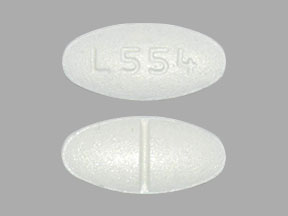
Fluoxetine Coupons & Savings Card – Discount Prices from $7.16
Generic for: Prozac
My prescription
Edit
20MG, Fluoxetine (30 Tablets)
Select pharmacy

CVS
$19.54
COUPON PRICE
Walmart
$7.16
COUPON PRICE
Walgreens
$12.60
COUPON PRICE
Albertsons
$15.55
COUPON PRICEFluoxetine savings card
Show this card to your pharmacist
Walmart
$7.16
BIN
ID
PCN
GRP
019876
LH8208474D
CHIPPO
LHX
Powered by
More prescriptions for ptsd
More prescriptions for ptsd
Price history for Prozac (brand) & Fluoxetine (generic)
30 Tablets, 20MG
Average retail price for Prozac
Average retail price for Fluoxetine
Average SaveHealth price for Fluoxetine
Our price history data is based on aggregated prescription data collected from participating pharmacies in America. Our prescription data updates daily to reflect the latest price changes. If you notice a missing data point, it means there wasn't sufficient data available to generate a monetary value for that date.
We analyzed Fluoxetine prices for (20MG, 30 Tablets) over the last 12 months. The average retail price was $31.14, while the average price using the SaveHealth discount card was $21.45. That's a savings of approximately 31.12% when using our Fluoxetine coupon.
Compared to the generic version, Prozac had an average price of $1640.56 over the same time period. With the SaveHealth savings card, Fluoxetine is 98.69% cheaper on average than Prozac.
*Retail prices are based on pharmacy claims data, and may not be accurate when we don't have enough claims.
Fluoxetine dosage forms
Dosage Quantity Price from Per unit 10MG 14 Tablets $4.91 $0.35 10MG 30 Tablets $7.66 $0.26 10MG 60 Tablets $19.19 $0.32 10MG 90 Tablets $21.28 $0.24 10MG 100 Tablets $21.98 $0.22 10MG 1000 Tablets $67.50 $0.07 20MG 30 Tablets $7.16 $0.24 20MG 60 Tablets $11.83 $0.20 20MG 90 Tablets $22.99 $0.26 20MG 100 Tablets $23.96 $0.24
| Dosage | Quantity | Price from | Per unit |
|---|---|---|---|
| 10MG | 14 Tablets | $4.91 | $0.35 |
| 10MG | 30 Tablets | $7.66 | $0.26 |
| 10MG | 60 Tablets | $19.19 | $0.32 |
| 10MG | 90 Tablets | $21.28 | $0.24 |
| 10MG | 100 Tablets | $21.98 | $0.22 |
| 10MG | 1000 Tablets | $67.50 | $0.07 |
| 20MG | 30 Tablets | $7.16 | $0.24 |
| 20MG | 60 Tablets | $11.83 | $0.20 |
| 20MG | 90 Tablets | $22.99 | $0.26 |
| 20MG | 100 Tablets | $23.96 | $0.24 |
| 60MG | 30 Tablets | $17.42 | $0.58 |
